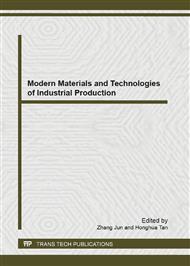p.240
p.244
p.249
p.254
p.261
p.266
p.273
p.277
p.280
Distribution and Potential Ecological Risk Assessment of Copper in Surface Sediments of Southern Kaohsiung Harbor, Taiwan
Abstract:
Major objectives of this study are to evaluation the enrichment, accumulation, and potential ecological risk of copper (Cu) in the surface sediments of southern Kaohsiung Harbor, Taiwan. Twelve sampling locations were installed of southern Kaohsiung Harbor to collect sediment samples for analyzing Cu. Results showed that the Cu concentrations varied from 6.0953 mg/kg with an average of 132±165 mg/kg. The spatial distribution of Cu reveals that the Cu concentration is relatively high in the river mouth region, and gradually diminishes toward the harbor entrance region. This indicates that upstream industrial and municipal wastewater discharges along the river bank are major sources of Cu pollution. Results from the enrichment factor and geo-accumulation index analyses imply that the sediments collected from the Salt River mouth can be characterized very severe degree enrichment and strong accumulation of Cu, respectively. Results of potential ecological risk index indicate that the sediment has low to higher ecological potential risk.
Info:
Periodical:
Pages:
261-265
DOI:
Citation:
Online since:
September 2013
Authors:
Keywords:
Price:
Сopyright:
© 2013 Trans Tech Publications Ltd. All Rights Reserved
Share:
Citation:


